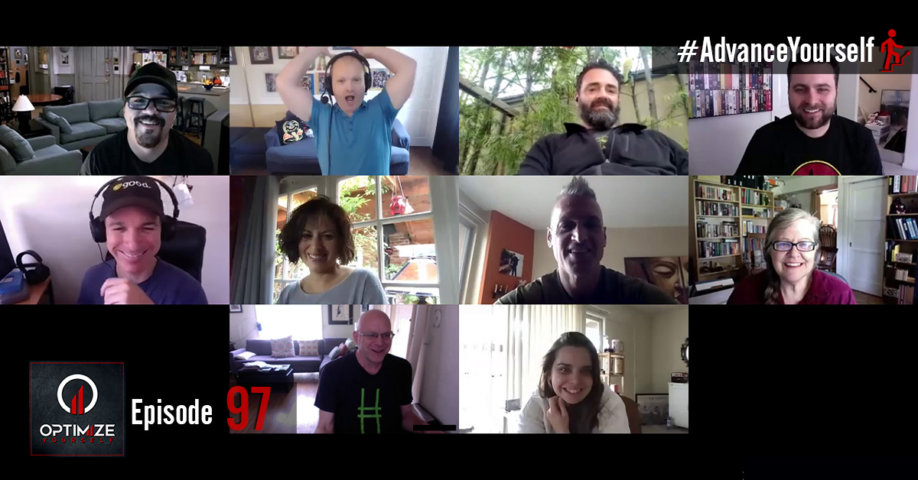How can we prepare for whatever the new job market holds? And when do we think it will even open again? And how can we make money in the meantime?
With all of the speculation going around the interwebs right now about when Hollywood is going to roll camera again, I and the Optimizer coaching & mentorship community decided to have a frank conversation about when we honestly believe production will ramp up again – and more importantly, what will our jobs in post-production look like when that time comes?
How important will it be to have remote workstations ready to go?
What are the new skills that will make us hireable & desirable?
How can we set ourselves apart when the flood gates open and hiring becomes a meat market?
Can we expect to go back to work earning the same rate if budgets are going to be cut everywhere?
We do believe there is A LOT you can do to prepare for when the job market opens again. If you’re still emotionally working through everything that’s going on right now, don’t worry – it’s okay if you’re not ready to be productive (but that ship is about ready to sail..just saying).
If you do want to accomplish something meaningful with the time you have available to you (besides catching up on Tiger King and Ozark that is), this is required listening for all of us.
Interested in becoming a part of the ‘Optimizer’ coaching & mentorship community?
» Click here to learn more and apply (applications close Sunday April 26th)
Want to Hear More Episodes Like This One?
» Click here to subscribe and never miss another episode
Here’s What You’ll Learn:
- While in COVID-19 lockdown, what can we do to stay motivated when there’s no external pressure to get things done?
- What can we be doing to prepare for when the job market opens back up? And what will it look like?
- If the industry shift more towards remote work, what will happen to our editor’s guild & unions?
- How much of an advantage will it be if we’re already setup to work from home when studio’s come back online?
- Hot tip: Since we’re not going to be doing in-person meetings any time soon, one of the most important skills you can improve on is digital communication.
- How long will it be before Hollywood reopens?
- What happened with Zack’s PPP application? (tragically funny story)
- Why the editors that will be in highest demand will be the ones who are adept at building better remote workflows.
- Is it safe to assume that if we were working before the pandemic that they’ll just hire us all back? (HINT: It’s complicated)
- Should we expect a more competitive job market that drives down wages?
- What are the positive changes we hope to carry forward into a post-pandemic job market?
- What jobs are most likely to be replaced very soon by automation and AI?
- What service can I provide that AI is not going to replace in the near future?
- In what specific ways can we improve our digital communication skills?
- Learn to better manage email
- Learn alternative communication tools and how to organize them to maximize productivity
- Learn digital project management with tools such as Trello for paperless workflows
- Since we don’t know how long this is going to last, should we look for other sources of income?
- Have you ever thought, “Maybe my livelihood shouldn’t depend on other people shooting footage for me”?
- How can I provide value to other people? And how can I deliver it more consistently?
- How do we discover the value we have provided to others that we may not realize people would pay us for?
Useful Resources Mentioned:
Ep96: Making Sense of the Unemployment + Small Business Loans Train Wreck | Community Q&A
Show Credits:
This episode was edited by Curtis Fritsch, and the show notes were prepared and published by Glen McNiel.
The original music in the opening and closing of the show is courtesy of Joe Trapanese (who is quite possibly one of the most talented composers on the face of the planet).
Note: I believe in 100% transparency, so please note that I receive a small commission if you purchase products from some of the links on this page (at no additional cost to you). Your support is what helps keep this program alive. If you have any questions, please don’t hesitate to contact me.


